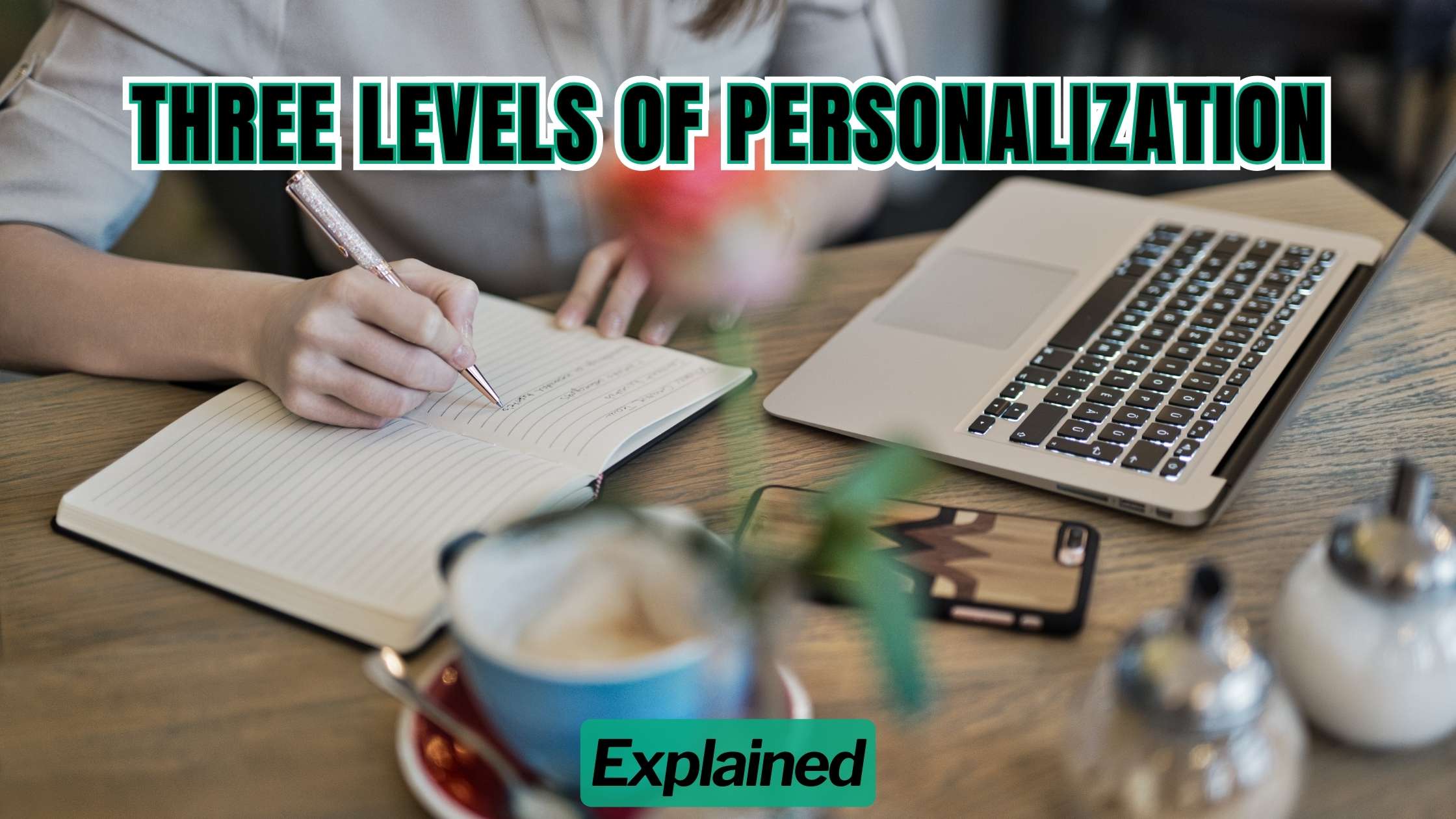Three Levels of Personalization: Explained
- Conversational Marketing Software SEO Software Affiliate Marketing Software Marketing Tools


Personalization has become a buzzword in marketing, but what does it really mean, and how can businesses implement it effectively? In this comprehensive guide, we’ll explore the three levels of personalization and provide insights into how businesses can leverage each level to enhance the customer experience and drive engagement.
Understanding the Three Levels of Personalization
- Basic Personalization: At the foundational level, basic personalization involves tailoring content or messaging based on demographic or behavioral data. This could include addressing the recipient by their name in email marketing campaigns or recommending products based on past purchases. Basic personalization aims to create a sense of familiarity and relevance for the customer.
- Segment-Based Personalization: Moving beyond basic personalization, segment-based personalization involves dividing customers into groups or segments based on shared characteristics or behaviors. Businesses can then deliver targeted messaging or offers to each segment, addressing their specific needs or interests. For example, an e-commerce site may create separate email campaigns for different customer segments, such as first-time buyers versus repeat customers.
- Individualized Personalization: The highest level of personalization, individualized personalization, involves tailoring content or experiences to the unique preferences and behaviors of each individual customer. This level of personalization often relies on advanced data analytics and machine learning algorithms to deliver highly personalized recommendations or experiences in real-time. Examples include personalized product recommendations on e-commerce websites or dynamically generated content based on browsing history.
Top SaaS Products for Personalization
- Mailchimp: Mailchimp offers robust email marketing tools with built-in personalization features, allowing businesses to create targeted email campaigns based on customer data. Official Website
- HubSpot: HubSpot’s marketing automation platform enables businesses to implement segment-based personalization strategies, such as creating dynamic email workflows and personalized content experiences. Official Website
- Optimizely: Optimizely provides experimentation and personalization tools that empower businesses to deliver individualized experiences across web and mobile channels. Official Website
- Segment: Segment is a customer data platform that helps businesses collect, clean, and unify customer data from various sources, enabling more effective segment-based and individualized personalization efforts. Official Website
- Dynamic Yield: Dynamic Yield offers a personalization platform powered by machine learning algorithms, allowing businesses to deliver individualized experiences in real-time across web, mobile, email, and other channels. Official Website
Conclusion
Personalization is no longer just a nice-to-have—it’s a critical component of modern marketing strategies. By understanding the three levels of personalization and leveraging the right tools and technologies, businesses can create more meaningful and engaging experiences for their customers, driving loyalty and ultimately, revenue.
As businesses strive to implement effective personalization strategies, Subscribed.FYI offers a curated selection of SaaS products designed to enhance personalization efforts and optimize the customer experience. From email marketing tools to customer data platforms, Subscribed.FYI provides valuable insights and deals on top-rated SaaS products that enable businesses to deliver personalized experiences at scale.
Relevant Product Links:





